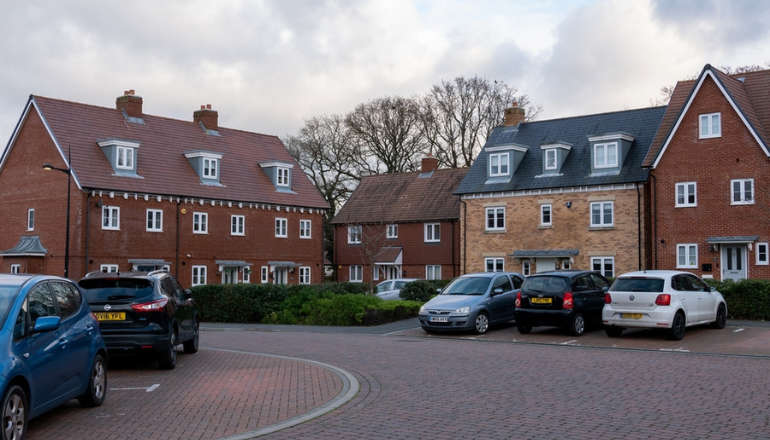Twenty-two council employees in East Sussex are earning pay and benefits in excess of £100,000, according to an annual report published by the TaxPayers’ Alliance. In its annual Town Hall Rich List, campaigners from the TaxPayers’ Alliance report there were 22 employees of East Sussex local authorities receiving pay and benefits in excess of £100,000 in the 2018/19 financial year. The largest number of high earners were employed by East Sussex County Council, which had 10 employees earning total remuneration above £100,000. Of these 10, five earnt more than £150,000 per annum. The council’s highest earner was chief executive Becky Shaw, who earnt a basic salary of £194,507 and total remuneration (including pension contributions) of £229,226. A spokesman for the authority said: "Our senior officers are responsible for a gross annual budget of more than £800 million and around 5,000 staff who deliver vital services to the people of East Sussex. "The scale of the leadership challenge running a complex organisation and services in the face of significant financial challenge, complex needs and multiple risks is significant, especially in these extraordinarily difficult times. "It is therefore extremely important that we are able to attract the best candidates, who have the skills, experience and knowledge to carry out their role effectively, and our policy is to pay all of our staff – including senior managers – salaries which are in line with the average pay grade for those doing similar jobs in the public sector in the south east. "In recent years we have reduced the number of senior managers by a quarter, and details of senior officer pay are available on the council’s website." Several other council authorities in East Sussex were also reported to have employees earning in excess of £100,000. These included Eastbourne Borough Council and Lewes District Council, which share a workforce. According to the report, the councils had four employees earning above £100,000, including one earning above £150,000 once pension contributions were included. With pension contributions excluded, only two staff members earned a basic salary in excess of £100,000. This included the councils’ chief executive Robert Cottrill who earned a basic salary of £136,306, bringing his total remuneration package to £163,780, including pension contributions. A spokesman for both councils said: "Unlike most local authorities, Eastbourne Borough Council and Lewes District Council now share all their services. "This means huge savings have been achieved by having one chief executive, one senior management team and one integrated workforce of officers working across both Eastbourne and Lewes District. "Overall, this transformation in service delivery has generated savings of £3.2 million, all achieved without making cuts to frontline services. "This major change created a combined saving of 25 per cent on senior officer salaries; having one chief executive alone saved £90,000." Rother District Council has just two employees on the list – executive directors Malcolm Johnston and Dr Tony Leonard. A Rother District Council spokesman said: "None of our employees received a gross salary of £100,000 or more. The figures quoted in the TaxPayers’ Alliance report included additional benefits such as pension contributions and other costs. "Senior officer roles come with considerable responsibility and, to ensure we attract candidates with the expertise and experience required to run the services residents are reliant on, we need to pay a competitive salary in line with similar local government posts in the south east. "Unlike many councils, Rother does not have a chief executive post which was removed in 2013, saving the taxpayer more than £135,000. "In recent years, we have been able to bridge funding gaps through efficiency savings, new partnerships and devolvement of assets and some services to keep council tax increases and service cuts to a minimum." Hastings Borough Council was in a similar situation, with two employees (its service directors) on the list. Both received take home pay of less than £100,000, with the two employees drawing a basic salary of £86,914 and £86,841 respectively. Hastings Borough Council declined to comment on the report. Wealden District Council had four employees on the list, but had unusually appointed a new chief executive that financial year. As a result the list included both former chief executive Charles Lant (basic pay of £153,907) and his successor Trevor Scott (basic pay of £117,212), who took on the role in July 2018. Significantly, the list only reports the headline annual pay for both men, rather than their actual earnings that year. The council’s two other high earners were its director of planning (basic salary of £102,652) and chief financial officer (basic salary of £85,983). Wealden District Council was approached for comment but had not responded at time of publication. According to the TaxPayers’ Alliance the annual list is intended to show residents which councils offer the best value for money in the country. John O’Connell, chief executive of the TaxPayers’ Alliance, said: "The coronavirus crisis means that frontline council services are more crucial than ever, but at the same time household budgets face an enormous squeeze from crushing council tax rises. "There are plenty of talented people in local authorities who are focused on delivering more for less, but that is needed across the board. The country needs every council to cut out waste and prioritise key services without resorting to punishing tax hikes on their residents. "These figures should shine a light on the town hall bosses who’ve got it right, but also allow taxpayers to hold to account those who aren’t delivering value for money at this critical time." (By Huw Oxburgh - local democracy reporter) More Radio is continuously dedicated to providing a quality news service on-air and online, reporting local stories that matter across Sussex. If you found this story useful, then check out our home page at moreradio.online where you can find the latest from the county, along with features and competitions from our presenters, as well as listening to the station live.You can also sign up to our news alerts to receive updates on new stories. Simply click on the bell at the bottom right of the home page. This will then allow a pop-up which will ask if you would like to receive alerts. Press ‘allow’ and you’re all signed up! You can also follow us on Facebook and on Twitter.


 Man Admits To Damaging Cars In Bognor
Man Admits To Damaging Cars In Bognor
 Two Men Arrested In Connection With Brighton Rape
Two Men Arrested In Connection With Brighton Rape
 Appeal Following Assault In Horsham Shop
Appeal Following Assault In Horsham Shop
 Appeal After Arson At Gym In Burgess Hill
Appeal After Arson At Gym In Burgess Hill
 Two Men Sought In Connection With Brighton Rape
Two Men Sought In Connection With Brighton Rape
 Councillors Support Baby Box Partnership With Charities
Councillors Support Baby Box Partnership With Charities
 Brighton And Hove Bus Fare Cap Bid Foiled By Cost
Brighton And Hove Bus Fare Cap Bid Foiled By Cost
 New Medical Centre Scoping Exercise Agreed By Wealden Council
New Medical Centre Scoping Exercise Agreed By Wealden Council
 'Out Of This World' Ideas Put Forward For Future Of Brighton i360
'Out Of This World' Ideas Put Forward For Future Of Brighton i360
 New Fire Engines For West Sussex
New Fire Engines For West Sussex